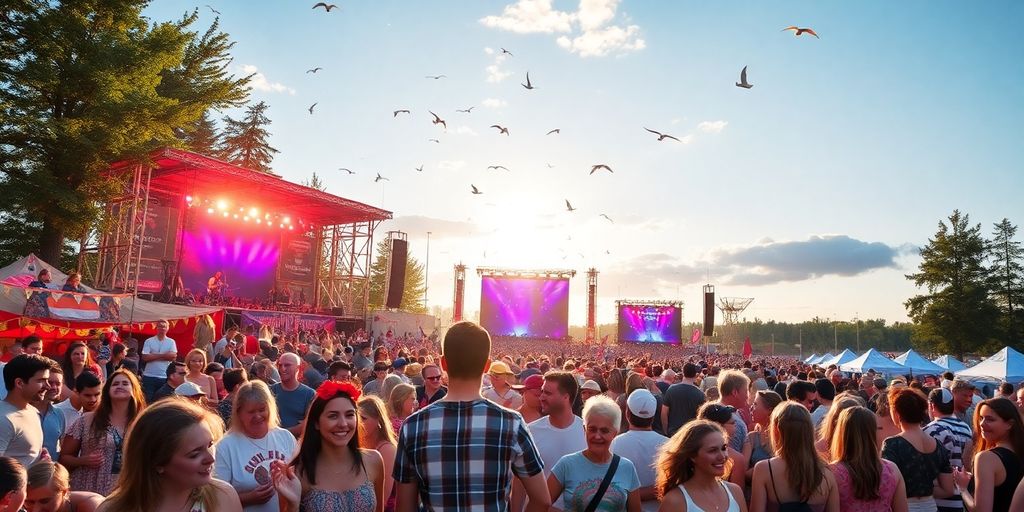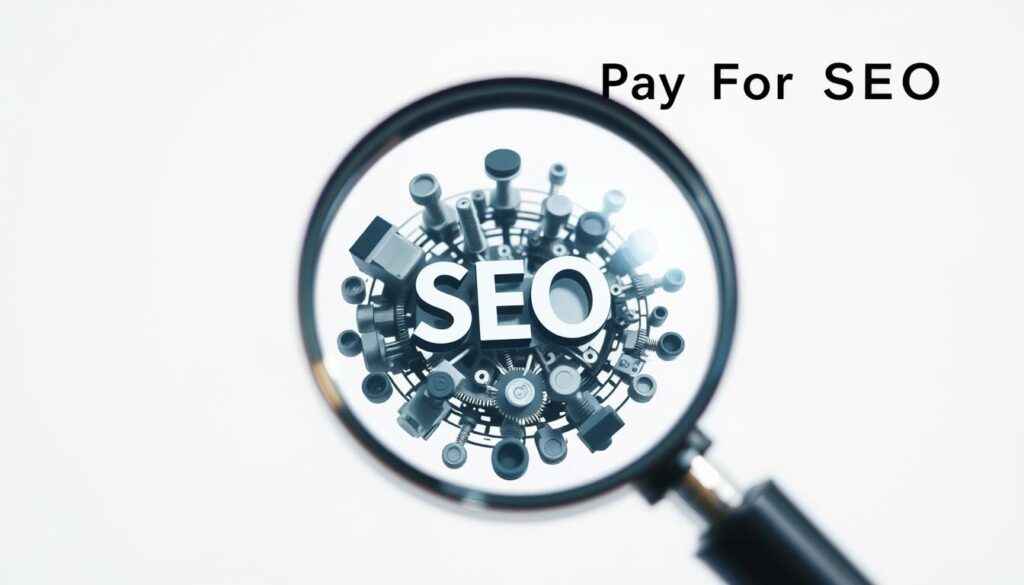Trying to figure out SEO for the entertainment and recreation world? It’s a bit like planning a big party. You want all the right people to show up, and you want them to have a great time. SEO, or search engine optimization, is all about making sure your website gets noticed by the right crowd online. Whether you’re promoting a concert, a new movie, or a local event, understanding SEO can really help boost your visibility and get more folks through your doors—or onto your site.
Key Takeaways
- SEO is crucial for getting your entertainment or recreation business noticed online.
- Using the right keywords helps attract the right audience to your site.
- Creating engaging content keeps visitors interested and coming back for more.
- Social media can boost your SEO efforts by promoting your content and engaging with your audience.
- Local SEO strategies help your business stand out in specific geographic areas.
Understanding SEO for Entertainment & Recreation
Defining SEO in the Entertainment Context
Search Engine Optimization, or SEO, in the entertainment world is all about making sure your online presence is as visible as it can be. This means getting your website, videos, and social media to pop up when someone searches for anything related to entertainment or recreation. The goal is to be the first thing people see when they search for fun things to do. Think of it like setting up a flashy billboard on the busiest street in town.
Importance of SEO for Audience Engagement
Why bother with SEO? Well, in the entertainment business, if people can’t find you online, it’s like you don’t exist. SEO helps pull in the crowd, keeping them interested and engaged with your content. It’s like having a magnet that draws in potential fans, making sure they stick around and check out what you have to offer. Without it, you might be missing out on a lot of fans and, let’s be honest, potential revenue too.
Key Components of Entertainment SEO
To make SEO work for you, there are a few key ingredients:
- Keywords: These are the words people type into search engines. Make sure you’re using the right ones so your stuff shows up.
- Content: Keep it fresh and engaging. Whether it’s blog posts, videos, or podcasts, make sure it’s something people want to see.
- Links: Getting other websites to link to yours can boost your credibility and help you rank higher in search results.
In the fast-paced world of entertainment, keeping your SEO game strong means you’re always ready to catch the eye of the next big fan. It’s not just about being seen; it’s about being remembered.
To enhance your entertainment business’s online visibility, targeted SEO strategies are crucial. They engage your audience and increase traffic, ensuring your content reaches the right people.
Effective Keyword Strategies for Entertainment SEO
Conducting Thorough Keyword Research
Keyword research is the backbone of any SEO strategy, especially in the fast-paced world of entertainment. You want to know what your audience is searching for, right? Start by brainstorming a list of terms related to your niche. Then, use tools like Google Keyword Planner to find out how often these terms are searched and how competitive they are. Focus on a mix of broad keywords and more specific long-tail keywords. Long-tail keywords might have lower search volumes, but they can attract more targeted traffic. Remember, it’s not just about getting visitors; it’s about getting the right visitors.
Incorporating Keywords into Content
Once you’ve got your list of keywords, it’s time to weave them into your content. But don’t overdo it! Keyword stuffing is a big no-no and can hurt your rankings. Instead, aim for a natural flow. Use your primary keywords in your headings and sprinkle related terms throughout the text. Don’t forget about meta tags—these are prime real estate for keywords. Also, consider using keywords in URLs and image alt tags to give search engines more context about your content.
Monitoring Keyword Performance
After integrating keywords into your content, keep an eye on how they’re performing. Use analytics tools to track which keywords are driving traffic and conversions. This data is gold—it shows you what’s working and what’s not. If some keywords aren’t performing as expected, don’t be afraid to tweak your strategy. SEO is an ongoing process, and staying flexible will help you keep up with changing trends and algorithms.
In the world of SEO, being adaptable and responsive to data insights is key to maintaining and improving your online presence.
Creating Engaging Content for SEO Success
Types of Content That Attract Audiences
Creating content that resonates with your audience is like crafting a good story—it’s all about connection. In the entertainment world, your content is your currency. Whether it’s a blog post, a captivating video, or an immersive podcast, the goal is to keep your audience coming back for more. Engaging content not only grabs attention but also encourages interaction and sharing. Consider what types of content your audience is drawn to and tailor your strategy around those preferences.
Utilizing Multimedia for Engagement
Multimedia is a game-changer in the entertainment sector. Videos, infographics, and interactive elements can make your content pop. They not only enhance the user experience but also improve your SEO by increasing time spent on page and reducing bounce rates. When you incorporate multimedia, you’re not just making content; you’re crafting an experience. Think about the last viral video you saw—it likely had a mix of humor, information, and a call to action. This blend keeps viewers engaged and eager to share.
Strategies for Shareable Content
Creating shareable content is about understanding what makes people tick. Here are some tips:
- Know Your Audience: Understand their interests, needs, and what they find entertaining.
- Be Relatable: Use language and scenarios that your audience can identify with.
- Call to Action: Encourage your audience to share or comment on your content.
In the fast-paced world of entertainment, creating content that is both engaging and shareable is key to expanding your reach and boosting your SEO performance. By focusing on what your audience loves, you can create memorable content that keeps them coming back for more.
For more insights on how SEO content has evolved and its current challenges, check out our exploration of the relevance of SEO content.
The Role of Social Media in Entertainment SEO
Building a Community on Social Platforms
Social media is a powerhouse for entertainment companies looking to grow their audience. By actively engaging on platforms like Instagram, Twitter, and TikTok, you can create a vibrant community around your brand. This isn’t just about posting content; it’s about interacting with your followers, responding to comments, and creating a dialogue. Building a community means your audience feels connected to you, and they’re more likely to engage with your content.
- Start by identifying which platforms your target audience uses the most.
- Develop a consistent posting schedule to keep your audience engaged.
- Use interactive content such as polls and Q&A sessions to boost engagement.
Leveraging Social Signals for SEO
Social signals, like shares, likes, and comments, play a significant role in SEO. They are indicators of quality and relevance, which search engines take into account. When your content is frequently shared, it signals to search engines that your content is valuable and worth ranking higher.
Engaging with your audience through social media not only builds relationships but also enhances your SEO efforts by increasing your content’s visibility and reach.
Promoting Content Through Social Media
Promotion is key in the entertainment industry. Social media platforms are excellent tools for getting your content in front of a larger audience. When you have a new release, whether it’s a music video, a film, or a live event, social media should be your go-to for promotion.
- Create eye-catching graphics and teasers to spark interest.
- Collaborate with influencers to extend your reach.
- Use hashtags strategically to increase discoverability.
Remember, social media isn’t just about pushing content out there; it’s about creating a buzz and encouraging your audience to share and engage with your content. For more tips on enhancing brand visibility through social media strategies, check out our social media SEO blog.
Enhancing User Experience Through SEO Practices

Improving Website Navigation and Structure
Creating a smooth navigation flow on your website is like setting up clear signposts in a park. Visitors need to find what they’re looking for without getting lost. Start by organizing your content logically. Use clear labels for your menus and make sure every page is reachable within a few clicks. A well-structured site not only helps users but also makes it easier for search engines to index your pages. A clean navigation setup can significantly boost user satisfaction.
- Organize content with intuitive categories.
- Ensure menus are visible and easy to use.
- Limit the number of clicks needed to reach any page.
Optimizing for Mobile Responsiveness
In today’s world, people use their phones for everything. If your site doesn’t look good or work well on a smartphone, you’re missing out. Mobile responsiveness means your site adjusts to fit any screen size, providing a seamless experience. Check how your site looks on different devices and make adjustments as needed. This can involve tweaking layouts, ensuring buttons are easy to tap, and verifying that text is readable without zooming.
- Test your site on various devices.
- Adjust layouts for smaller screens.
- Ensure all interactive elements are touch-friendly.
Increasing Page Load Speed
Nobody likes waiting for a webpage to load. Slow sites can frustrate users and send them elsewhere. To keep visitors engaged, focus on speeding up your site. Compress images, reduce redirects, and consider using a content delivery network (CDN) to serve your site faster. Tools like Google PageSpeed Insights can help you identify areas for improvement.
Remember, a fast-loading site not only keeps users happy but also helps with Casino SEO services by improving your search engine rankings.
- Compress large images and files.
- Minimize the number of redirects.
- Use a CDN to distribute content efficiently.
Local SEO Strategies for Entertainment Businesses
Optimizing for Location-Specific Keywords
To get noticed in your local area, it’s important to use location-specific keywords. Think about what your audience is searching for. Are they looking for "live music in Austin" or "comedy clubs in Chicago"? Using the right keywords on your website can make a big difference. Make sure these keywords are in your titles, meta descriptions, and throughout your content. This way, when someone nearby is searching for entertainment, your business pops up.
Creating Local Business Listings
Setting up local business listings is a must. Platforms like Google My Business let you create a profile that shows up in local search results. Fill out your profile completely, with your address, hours, and contact info. Add some photos too, because visuals catch the eye. This not only helps people find you but also builds trust. And don’t forget about other sites like Yelp or TripAdvisor; they’re also great for getting your name out there.
Encouraging Customer Reviews
Reviews are gold. They build credibility and help you rank higher in search results. Encourage your customers to leave reviews by making it easy for them. Send a follow-up email after their visit or offer a small discount for their feedback. Respond to reviews, good or bad, to show that you care. This interaction not only boosts your reputation but also improves your SEO performance.
Local SEO isn’t just about being found; it’s about being chosen. By focusing on these strategies, entertainment businesses can connect with their community and stand out in a crowded market.
Measuring SEO Success in Entertainment & Recreation

Key Metrics to Track for SEO Performance
When it comes to measuring the success of your SEO efforts in the entertainment and recreation sector, there are several key metrics you should keep an eye on. Organic traffic is one of the most important indicators. It shows how many visitors are finding your site through search engines without paid ads. Another critical metric is bounce rate, which tells you how many visitors leave your site after viewing just one page. A high bounce rate might indicate that your content isn’t engaging enough or that your site’s user experience needs improvement.
Other metrics to consider include:
- Conversion Rate: This measures the percentage of visitors who take a desired action, like signing up for a newsletter or purchasing a ticket.
- Page Load Speed: A slow website can drive visitors away, so ensure your pages load quickly.
- Backlink Profile: Quality backlinks from reputable sites can boost your SEO ranking.
Tools for Analyzing SEO Effectiveness
To effectively analyze your SEO performance, you need the right tools. Google Analytics is a staple for tracking traffic and user behavior on your site. It provides insights into where your visitors are coming from and what they’re doing on your site. For a deeper dive into keyword performance and backlink analysis, tools like SEMrush or Ahrefs are invaluable. They offer comprehensive data that can help you refine your SEO strategy.
Here’s a quick rundown of useful tools:
- Google Analytics: For tracking traffic and user behavior.
- SEMrush: For keyword research and competitor analysis.
- Ahrefs: For backlink analysis and SEO audits.
Adjusting Strategies Based on Data Insights
Once you’ve gathered data using these metrics and tools, it’s time to adjust your SEO strategy accordingly. If you notice a drop in organic traffic, it might be time to revisit your keyword strategy or improve your content quality. If your bounce rate is high, consider enhancing your site’s user experience or making your content more engaging.
Remember, SEO is not a one-time effort but an ongoing process. Regularly reviewing your data and making informed adjustments will help you maintain and improve your online presence.
Additionally, monitoring backlinks generated by press releases is crucial for evaluating the effectiveness of an SEO strategy. Tracking these metrics over time provides insights into the success of press release efforts in enhancing online visibility.
By consistently measuring and adjusting your SEO efforts, you can ensure that your entertainment or recreation business continues to attract and engage your desired audience.
Wrapping It Up
So, there you have it. SEO for entertainment and recreation isn’t just a fancy buzzword—it’s a real game-changer. By getting your website to pop up when folks are searching for the latest concert or the coolest theme park, you’re not just boosting your online presence; you’re drawing in more fans and customers. It’s all about making sure your content is seen and your events are packed. Sure, it takes some effort and a bit of know-how, but the payoff? Totally worth it. Whether you’re a small local theater or a big entertainment company, SEO can help you stand out in a crowded market. So why wait? Dive in and start optimizing today!
Frequently Asked Questions
What is SEO, and why is it important for entertainment businesses?
SEO, or Search Engine Optimization, helps entertainment businesses get noticed online. It makes sure your website shows up higher on search engine results, which can bring more visitors and fans to your site.
How long does it take to see results from SEO efforts?
SEO isn’t magic, so it doesn’t work overnight. It usually takes a few months to notice big changes, but keeping at it will bring better results over time.
Can SEO help my entertainment business stand out from competitors?
Yes! With a smart SEO plan, you can outshine your competitors in search results. By using the right keywords and creating awesome content, your business can climb higher in rankings.
Is it necessary to hire an SEO expert for my entertainment company?
Hiring an SEO expert can be helpful because they know the latest tricks and strategies. But if you have the time and resources, you can learn and do it yourself too.
Should I focus on organic SEO or use paid ads for my business?
Both are useful. Organic SEO helps build long-term success, while paid ads can give you quick results. It’s good to use both if you can afford it.
Can local SEO help my entertainment business reach nearby customers?
Definitely! Local SEO uses special tactics to make sure people in your area find your business easily. This is great for attracting local fans and customers.






